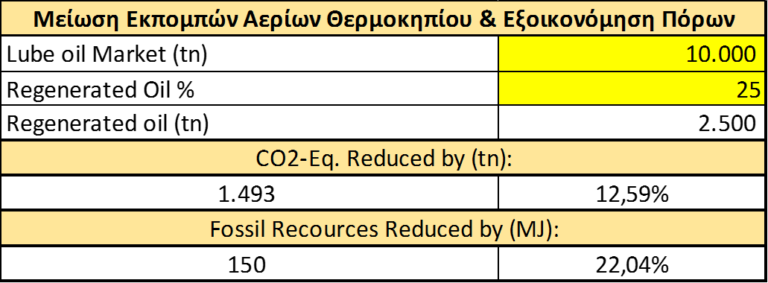Section A: General
The European Commission, taking into account the fact that Public Procurement constitutes approximately 14% of GDP. of the Member States and in the framework of the action plan to strengthen a more efficient in terms of the use of resources, and friendlier to the environment economic model, of the Circular Economy has established criteria which it proposes to the Member States to adopt, in order for Public Procurement to become " green" ( Green Public Procurement and the EU action plan for the Circular Economy - Study for the ENVI Committee – upd 2017).
These criteria have as their objective the direction of Public Organizations towards the supply of environmentally friendly products, and consequently the support of recycling operations, the production of products with a small environmental footprint and the more efficient use of resources and energy.
At the moment the only member states that have not adopted even some of the EU criteria. for Green Public Procurement are Luxembourg, Estonia, Hungary, Romania and Greece.
In complete contrast to the above, in Greece there is the exclusion from tenders for the public supply of recycled materials, regardless of whether or not they meet the technical
specifications required on a case-by-case basis.
General principles that should govern MFFs
As general principles in the adoption by the Single Independent Public Procurement Authority (EADISY), of the institution of Green Public Procurement, we believe that the following should be:
- Application of the principles of free competition and equal treatment of primary and recycled materials. This is implemented by:
- Mandatory inclusion of a minimum percentage of recycled materials in Public Procurement based on specific specifications
- The mandatory supply of recycled materials should not result in a deliberate increase in their acquisition costs.
- It is imperative to include technical specifications that must be met regardless of whether the materials are primary or recycled, so as not to degrade the quality of the materials to be supplied.
Government agencies involved:
- YPEN/EOAN – services involved in the process of producing recycled materials.
- Green Public Contracts Committee which has been established with YA 63955/239/13-6-2017 and which aims to draw up a National Action Plan for the promotion of Green Public Contracts, based on the provisions of the Union legislation.
- Single Independent Public Procurement Authority (EADISY ), which is also the regulatory authority regarding the inclusion of the criteria proposed by the European Commission for Green Public Procurement.
Principles that should govern Green Public Procurement:
- Suspension (Removal) of the ban on recycled materials from Public Procurement
- Inclusion in Public Procurement of minimum percentages per material stream
- Inclusion of specific technical specifications that must be met by all materials to be supplied regardless of whether they are primary or recycled.
- Accelerating the process of drawing up a National Action Plan for the promotion of Green Public Contracts
B Section
- The exclusion of regenerated oils from Public Procurement also contradicts the recently voted by the K.Y.A. parliament. 62952/5384/30.12.16 (Approval of the National Hazardous Waste Management Plan ) which states: "The use of the lubricating oils resulting from treatment (R9) will be promoted, mainly by removing any obstacles that arise and act as a barrier to their disposal in the market."
- Both the National Plan for Green Public Contracts and the Public Procurement Regulation should provide for the supply of lubricants with a minimum percentage of 25% coming from regenerated base oils.
The market size of the lubricating oils consumed by Public Organizations in Greece is estimated at 10,000 t per year.
If we replace 25% of the above quantity, i.e. 2,500 t, with regenerated oils, the resulting benefits are:
- Greenhouse Gas Reduction by: 12.6%
- Saving of Mineral Resources by: 22.0 %

source : IFEU Life Cycle Analysis June 2017 .
- Public tenders for lubricants must be carried out based on specific technical specifications of requested products, depending on the use for which they are intended.
- No analytical method can distinguish the origin of an Essential Oil. The regenerated Base oils must meet the same specifications as the primary ones, as they are intended for the same uses as them. Consequently, a requirement for Base oils (regenerated and primary) and lubricants produced from them, is their absence of classification due to non-dangerousness. The danger of these substances is a result of the possible presence of poly-aromatic compounds (PAH) in concentrations greater than 3%. This limit is sufficiently documented by numerous studies (API, CONCAWE , etc. ). The proposed specification IP 346 (DMSO extract refractive index standard method), <3% . it is applied regardless of the origin of the Base lubricating oil and its production technology, and is a general rule for its classification or not. Sealing this requirement, is the registration of the regenerated Essential oils according to the REACH Regulation, as is the case with the primary ones.



